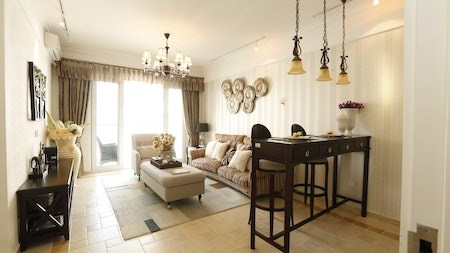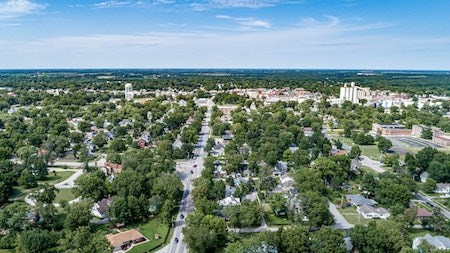Sectional title units have become more popular than freestanding homes in the past few years. This is due to the rising costs of maintaining a property and the added security usually provided in sectional title complexes.
In addition, sectional title units tend to be more affordable than similar freestanding properties. As a result, the number of sectional title schemes being developed around the country is increasing.
However, owning a unit in a sectional title complex differs from living in a house. Therefore, prospective buyers need to consider several factors before signing an offer to purchase.
Joint ownership
Each sectional title unit is one section of a complex, which all the unit owners jointly own. Some units do come with rights to use a particular area exclusively, for example, a section of the garden or a parking area. However, the unit owners do not own these areas - they remain part of the common property.
Once the ownership of the units is transferred from the developer, the owners become members of the body corporate of the complex. This entitles them to vote at body corporate meetings and have a say in how the scheme is run.
It is in the best interests of all owners to be involved in all that happens in the complex. However, if you would prefer not to be involved with close neighbours, you might be better off buying a freestanding property where you can keep pets and make alterations as you please.
Management
Since 2016 the sectional title schemes management has been governed by the Sectional Titles Management Act (No 11 of 2011), which amended the original Sectional Titles Act 95 of 1986.
The rules governing sectional title schemes are the prescribed management rules and the conduct rules. Management rules direct the efficient running of the sectional title scheme and include administration, accounting, insurance, elections, meetings, levy budgeting and collection. A unanimous vote can only change them from all the owners at a general meeting.
Conduct rules govern owners and tenants, and they deal with issues such as noise levels, pet ownership, parking and general behaviour.
At the annual general meeting, body corporate elects trustees to manage the finances and run the day-to-day affairs of the sectional title scheme.
Finances
Budgets for any scheme depend heavily on all members paying their levies on time and in full every month so that the scheme can meet all its financial obligations. Therefore, unit owners may not withhold levy payments for any reason whatsoever – even if they may be dissatisfied with the management.
Levies are the lifeblood of any scheme, and withholding payments leads to additional administration, not to mention a strained relationship with other owners who pay their levies on time.
Without proper budgeting, the body corporate won't be able to pay its bills, nor will it be able to keep the buildings and facilities in good condition. Over time, the complex will become rundown, and the units will lose value.
There are three categories of levy:
Monthly levies cover ordinary operating expenses such as staff salaries, and all members are liable to pay these every month.
Exclusive use area levies are payable by the unit owners who have exclusive rights to certain areas.
Special levies are used for larger items that weren't budgeted in the annual budget. All unit owners are liable to pay these as and when they arise.
Considering buying a unit in a scheme? First, it's essential to check the financials to see that everything is in order – particularly the issue of adequate maintenance. If not, you may be faced with finding additional funds if a special levy needs to be called for in future.
Conduct rules
In most sectional title schemes, the conduct rules are usually the ones that prevent some buyers from putting in an offer to purchase.
Some examples of conduct rules include:
Alterations to units. This is not allowed unless the trustees have granted permission. Changes may not be made to common property, and if the modifications to a unit affect the common property, they may not be carried out.
Pet ownership. Some schemes don’t allow animals – or prohibit the ownership of certain animals. You cannot assume that you will be allowed to keep pets or that the type of animal you own is allowed.
Vehicles and parking areas. These are often contentious issues. For example, owners and visitors may not drive too fast or park in bays that are not allocated to them.
Signs or notices on buildings are forbidden unless the trustees have permitted for them to be displayed. This includes For Sale or To Let signs.
Washing may not be dried in areas not explicitly allocated for this use. Owners often hang out washing to dry on balconies, not realising this is an infringement of conduct rules.
Refuse removal. Some complexes have specific disposal procedures, for example, the difference between normal wet and recycling refuse. There may also be certain days when the refuse must be put out for collection.
Conclusion
Living in a sectional title scheme can be a great experience – and a good investment - provided the complex is well-run and has a healthy communal environment.
Sharing expenses such as security and lifestyle facilities like gyms or swimming pools make it a good option for a modern lifestyle. But before you place your signature on the dotted line, you need to be sure that you can comfortably live according to the rules and in harmony with your neighbours.




